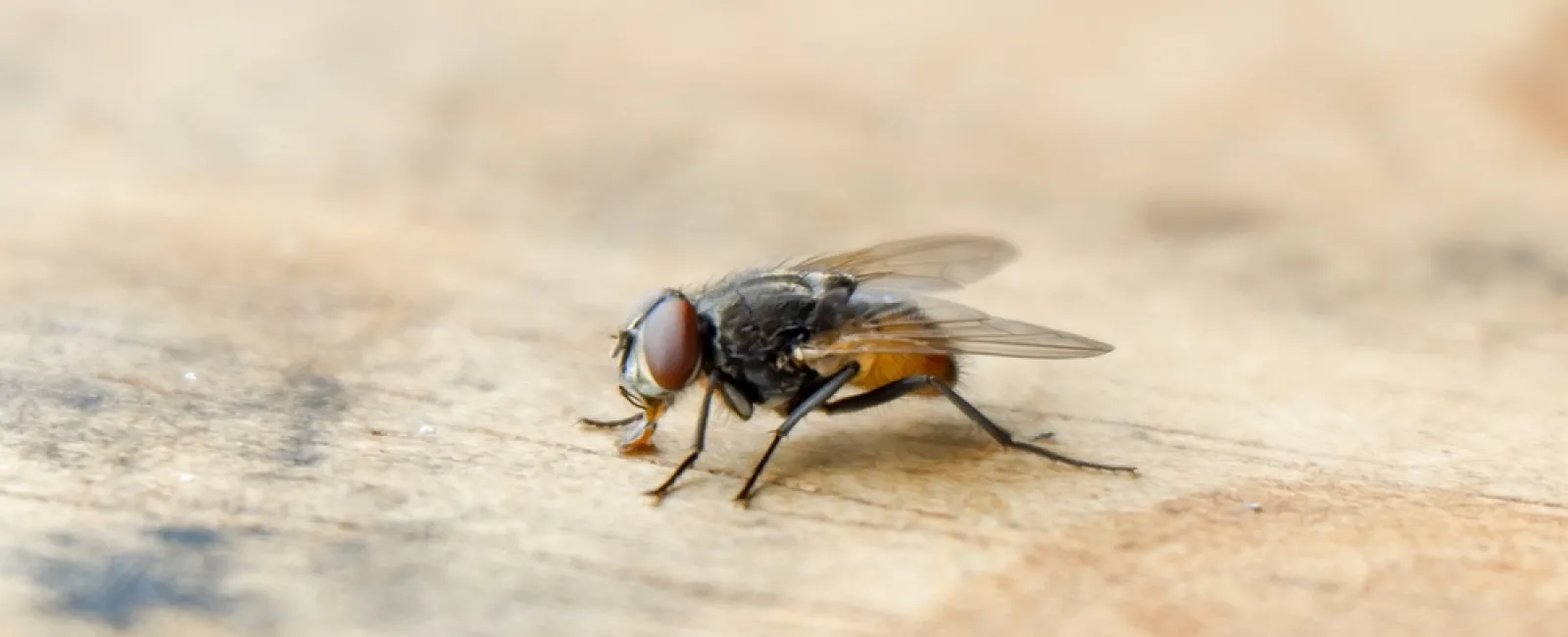There is nothing more annoying than a fly circling your kitchen. Its presence might be ignored if it weren't for its loud buzzing and tendency to land on or near you every five seconds.
Whether you're dealing with a single rogue fly or dozens congregating near your windows and trash cans, flies have a singular knack for disrupting our peace. Let's break down the top causes of house fly infestations and what it might mean for your home and sanity.
1. Something Smells
Flies have an incredible sense of smell and are attracted to rotting food, sugary spills, dirty drains, and trash. Even the smallest crumbs or overripe fruit can trigger a fly invasion.
Common attractants include:
Open garbage cans
Pet waste (inside or outside)
Overflowing litter boxes
Food scraps in the sink
Spilled soda or juice
Human food
If you've noticed a lot of flies in your house, check every room, especially the kitchen and bathrooms, for hidden messes.
2. Your Doors and Windows Are Open
Flies are experts at slipping through open windows, broken screens, and poorly sealed doors. These are some of the most common entry points that allow flies access to your home. Once they're in, they multiply quickly—especially if they find something tasty.
To keep them out:
Repair screen holes
Seal entry points
Keep doors closed as much as possible
Use weather stripping where needed
Even in restaurants and commercial kitchens, flies sneak in when cleanliness or entry barriers are neglected.
3. Moisture
Standing water and excessive moisture are a magnet for flies. Damp mops, leaky pipes, clogged drains, soggy compost bins, and stagnant water can all provide breeding grounds for flies.
Drain flies and house flies often lay eggs in:
Floor drains
Sink overflows
Wet rags or towels
Damp soil in indoor plants
Stagnant water
These locations serve as common breeding grounds for flies. Eliminating these breeding grounds is crucial because it is here that flies breed and multiply rapidly. Dry things out and clean frequently to discourage breeding spots.
4. You May Already Have a Breeding Site
One of the biggest reasons for fly infestations? Eggs have already hatched inside your home. Fly eggs are often laid in warm, decaying material, and eggs hatch quickly under the right conditions, leading to rapid population growth.
House flies reproduce quickly. Female houseflies are capable of laying hundreds of eggs, and most fly species have a short life cycle, allowing populations to grow rapidly. A single female can lay up to 500 eggs in her lifetime, often in:
Trash bins
Organic matter
Dead animals (like rodents or birds in attics/walls)
Pet food or waste
If you're seeing a sudden swarm, you might be dealing with the second or third generation already. At this point, professional help is the most efficient solution.
4 Common Types of Flies Invading Your Home
When you spot flies in your home, it's easy to assume they're all the same—but several different fly species can invade your space, each with their own habits and preferences. The most common culprits include house flies, fruit flies, cluster flies, and drain flies.
House flies are the classic gray or black flies you'll see buzzing around, especially near food and trash cans. They're notorious for spreading pathogens and are drawn to any kind of decaying organic matter or rotting food.
Fruit flies are much smaller and tend to hover around overripe fruit, sugary spills, or fermenting liquids. If you notice tiny flies near your kitchen or trash cans, you're likely dealing with a fruit fly infestation.
Cluster flies are often mistaken for house flies, but they're a different fly species altogether. Unlike house flies, cluster flies lay eggs in soil and often enter homes in the fall or winter, gathering in large numbers in attics or window frames.
Drain flies prefer the moist, organic matter found in drains and pipes. If you see fuzzy, moth-like flies near sinks or showers, these are likely drain flies feeding on the gunk inside your plumbing.
Identifying which type of fly infestation you have is the first step to effective fly control.
How to Keep Flies Out of Your Home
The best way to deal with flies is to stop them from getting inside in the first place. Here are some proven prevention tips to keep your home fly-free:
Seal all entry points: Check for cracks and gaps around windows, doors, and vents, and seal them to block flies from entering.
Install screens: Ensure all windows and doors have tight-fitting screens to keep flies out while allowing fresh air in.
Keep it clean: Regularly clean trash cans, wipe up spills, and don't let dirty dishes or food scraps sit out. Pay special attention to drains and pet waste, as these are common breeding sites.
Eliminate standing water: Fix leaky pipes, empty trays under potted plants, and avoid leaving water in sinks or buckets—flies are attracted to moisture.
Store food properly: Keep all food in sealed containers and refrigerate leftovers promptly to remove food sources that attract flies.
Maintain outdoor areas: Pick up pet waste, keep garbage cans tightly closed, and dispose of trash regularly to prevent flies from breeding near your home.
By following these simple steps, you can prevent fly infestations and enjoy a cleaner, healthier living space.
What Does an Excessive Number of Flies in the House Mean?
It usually signals a hygiene or maintenance issue that's gone unnoticed. Even a clean house can experience issues with flies inside if there are hidden attractants like undetected leaks, forgotten food sources, or access from outside. Food availability is a key factor that supports large fly populations, and the presence of flies can also attract other insects, compounding the pest problem.
Call Alder Pest Control to Handle Your Fly Problem Fast
When fly populations get out of control, it's time to call in the pros. For severe or persistent infestations, Alder's professional pest control provides the expertise, specialized tools, and comprehensive approach necessary to fully resolve the issue.
At Alder Pest Control, we don't just treat the symptoms—we find and eliminate the source. Our technicians know exactly where to look and how to safely and effectively remove fly infestations from your home or business. Our fly control services provide specialized solutions for eliminating and preventing fly problems, ensuring long-term protection.


